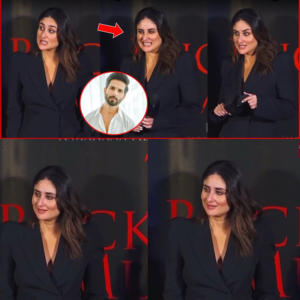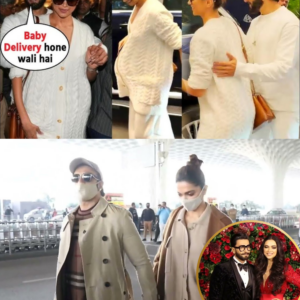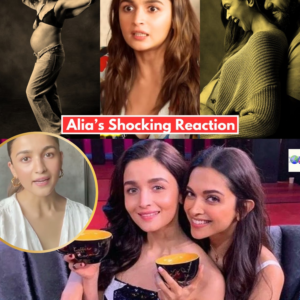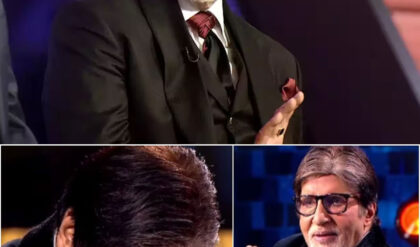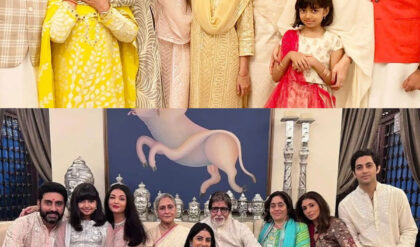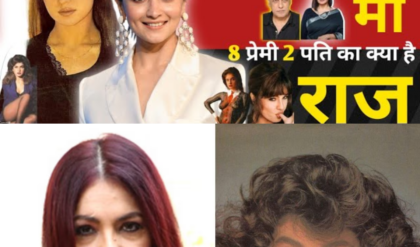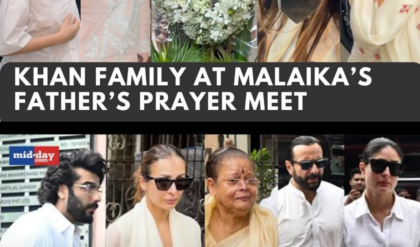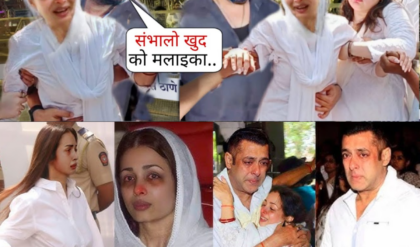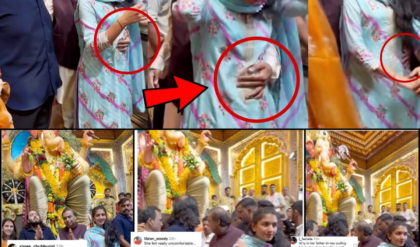In today’s digital age, the line between public persona and private life for celebrities has become increasingly blurred. Social media has fostered a climate where the personal lives of stars are subjected to intense scrutiny, and the expectations placed upon them are often unrealistic. A recent episode of Koffee With Karan, featuring Bollywood power couple Deepika Padukone and Ranveer Singh, brought this issue to the forefront, sparking widespread debate and revealing the inherent challenges of modern celebrity culture.

The episode, which quickly became a talking point online, showcased a candid conversation between Deepika and Ranveer. However, what should have been a light-hearted exchange soon turned into a tense and awkward moment. Deepika’s admission of seeing other people before fully committing to Ranveer, and Ranveer’s visibly caught-off-guard reaction, led to a flurry of opinions from viewers. The discomfort was palpable, and social media users were quick to dissect every word, every glance, and every gesture. This incident raises an important question: Have we reached a point where celebrities are expected to live up to an impossible moral standard, dictated by the ever-vigilant eyes of social media?
FULL VIDEO:
The scrutiny of celebrity relationships is not new, but the advent of social media has magnified it to unprecedented levels. Fans often project their own ideals onto their favorite stars, creating a fantasy world where these celebrities must be perfect in every aspect of their lives. This phenomenon is particularly evident in what is known as “stan culture,” where fans feel it is their duty to defend their idols at all costs. However, this relationship is inherently toxic, as it is based on a carefully curated public image rather than the reality of who these celebrities are behind closed doors.
Moreover, the double standards that exist in the criticism of male and female celebrities are glaring. When male actors are dragged online for their behavior or comments, there is rarely a call for moral policing. Yet, when a female celebrity like Deepika opens up about her struggles, the backlash can be severe and often rooted in sexism. This episode highlighted that every disagreement or criticism cannot simply be dismissed as misogyny; sometimes, people just have differing opinions, regardless of gender.
Despite the controversies, Koffee With Karan continues to be a guilty pleasure for many viewers. The show’s ability to generate buzz and keep audiences hooked is a testament to its formula of mixing frivolous conversations with moments of real vulnerability. However, the fear of being “canceled” or trending for the wrong reasons has made celebrities more cautious, leading to less candid and more rehearsed interactions. This shift reflects the changing landscape of celebrity interviews, where the stakes are higher than ever.
As the episode with Deepika and Ranveer shows, the reality of celebrity life is far from the rosy picture often painted by PR teams and fan edits. The tension and awkwardness observed were not just a product of the couple’s interaction but also of the pressures imposed by a hypercritical audience. As viewers, we must remember that what we see is only a fraction of the truth, carefully edited and presented for public consumption. The challenge lies in recognizing the distinction between the persona and the person and allowing celebrities the space to be imperfect.
In conclusion, the drama on Koffee With Karan is a microcosm of the larger issues plaguing celebrity culture today. While we enjoy the spectacle, it is crucial to approach it with a critical eye, understanding that the people on screen are just that—people, with all the flaws and complexities that come with being human. The show will undoubtedly continue to push boundaries and create headlines, but it also serves as a reminder of the need for empathy in our consumption of celebrity culture. As we look forward to future episodes, let’s remember to take it all with a grain of salt.
News
Katrina kaif meets Deepika Padukone’s Baby Boy in Breach Candy Hospital
Katrina Kaif recently paid a visit to her dear friend Deepika Padukone, who has just welcomed a baby boy into the world. The visit took place at Breach Candy Hospital, where Deepika has been recovering after the birth. This…
Kareena Kapoor Makes a Face on Camera Upon Hearing Shahid Kapoor’s Name
At a recent trailer launch event for the upcoming film The Buckingham Murder, Kareena Kapoor found herself in an unexpected moment of viral fame. The event, held in Mumbai, drew significant attention as Kareena, alongside director Hansal Mehta and…
Deepika Padukone Delivery Room Video After Birth Adorable Baby With Husband Ranveer Singh
Bollywood actress Deepika Padukone is set to welcome her first child with husband Ranveer Singh this September, and fans couldn’t be more excited. The actress recently took to social media to share a stunning maternity photoshoot, leaving her followers…
VIDEO: Deepika Padukone Blessed with her First Baby Boy after her Pregnancy flaunting without any makeup
Deepika Padukone Blessed with her First Baby Boy after her Pregnancy flaunting without any makeup . . . Play video: . . . Mom-to-Be Deepika Padukone’s No-Filter Pics Winning the Internet Deepika Padukone, the soon-to-be mom,…
Alia Bhatt’s Shocking Reaction On Deepika Padukone Maternity Photoshoot
The recent maternity photoshoot of Bollywood star Deepika Padukone has garnered widespread attention, and Alia Bhatt’s reaction to it has taken center stage, causing a stir in the entertainment industry. With Deepika preparing to embrace motherhood, her photoshoot has…
Sad News For Pregnant Deepika Padukone After Flaunts Baby Bump in Maternity Photoshoot
Bollywood actress Deepika Padukone recently found herself in the spotlight once again, this time for her maternity photoshoot. While many fans have showered her with love and admiration, praising her for her glowing appearance and beautiful portrayal of motherhood,…
End of content
No more pages to load

